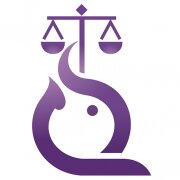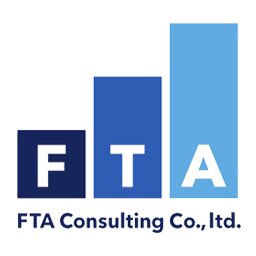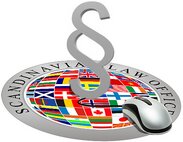1. เกี่ยวกับกฎหมายกฎหมายว่าด้วยการกำกับดูแลพลังงานในประเทศไทย
กรอบกฎหมายพลังงานของประเทศไทยรวมถึงกฎหมายหลักที่กำกับดูแลการผลิต จำหน่าย และการใช้พลังงาน โดยมุ่งเน้นความเสถียรของระบบ ความปลอดภัย และการคุ้มครองผู้บริโภค
พระราชบัญญัติโฟกัสหลักด้านพลังงาน ได้แก่ พระราชบัญญัติอุตสาหกรรมพลังงาน (Energy Industry Act) บัญญัติการออกใบอนุญาต และกรอบการกำกับดูแลโดยคณะกรรมการกำกับดูแลพลังงาน (ERC) ซึ่งเป็นผู้กำกับดูแลภาคเอกชนที่ดำเนินกิจการพลังงานในประเทศไทย
หน่วยงานที่เกี่ยวข้อง ได้แก่ ERC ซึ่งดูแลใบอนุญาตและมาตรฐาน tariff และความมั่นคงระบบไฟฟ้า, DEDE ที่ดูแลพลังงานทางเลือกและการอนุรักษ์พลังงาน และ DOEB ที่ดูแลกิจการพลังงานได้แก่ปิโตรเลียม ก๊าซ และอื่นๆ
“การกำกับดูแลพลังงานมีเป้าหมายหลักคือความปลอดภัยของระบบ พัฒนาโอกาสทางพลังงานที่ยั่งยืน และคุ้มครองผู้บริโภคในราคาที่เป็นธรรม”
กฎหมายดังกล่าวมีวิวัฒนาการร่วมกับนโยบายพลังงานของประเทศ และมักมีการปรับปรุงเพื่อรองรับการเปลี่ยนแปลงเทคโนโลยีและความต้องการตลาด
2. ทำไมคุณอาจต้องการทนายความ
การขอใบอนุญาตประกอบกิจการพลังงานจาก ERC เป็นกระบวนการที่ซับซ้อน ต้องการเอกสารทางเทคนิคและการเงินที่ครบถ้วน ทนายความช่วยตรวจทานสัญญาและคำชี้แจงทางกฎหมายให้ถูกต้อง
กรณีโครงสร้างผู้ถือหุ้นเปลี่ยนแปลง เช่น การโอนหุ้นหรือมีทุนต่างชาติร่วมทุน จะถูกตรวจสอบภายใต้กรอบกฎหมายพลังงาน และต้องสอดคล้องกับข้อกำหนดการถือหุ้นของ ERC
ข้อพิพาทกับ ERC เกี่ยวกับการตีความเงื่อนไขใบอนุญาต หรือการคงสิทธิและภาระผูกพันในสัญญา จำเป็นต้องมีทนายช่วยวิเคราะห์แนวทางทางกฎหมายและการยื่นอุทธรณ์/พิจารณาคดี
โครงการพลังงานทางเลือกและพลังงานทดแทน ต้องสอดคล้องกับ AEDP Act และระเบียบที่เกี่ยวข้อง ทนายความช่วยจัดทำแผนการปฏิบัติตามข้อกำหนดและการรายงาน
สัญญาซื้อขายไฟฟ้า (PPA) หรือสัญญาระหว่างผู้ผลิตกับผู้ใช้งานพลังงาน ควรมีการตรวจสอบเงื่อนไข การระบุความเสี่ยง และการเยียวยาหากเกิดข้อพิพาท
3. ภาพรวมกฎหมายท้องถิ่น
- พระราชบัญญัติอุตสาหกรรมพลังงาน พ.ศ. 2554 กำหนดกรอบใบอนุญาต การกำกับดูแล และมาตรฐานความปลอดภัยด้านพลังงาน ร่างกายผู้มีหน้าที่ออกใบอนุญาตและการบังคับใช้อยู่ที่ ERC
- พระราชบัญญัติการอนุรักษ์พลังงาน พ.ศ. 2560 เน้นการลดการใช้พลังงาน เพิ่มประสิทธิภาพการใช้งาน และกำหนดสิทธิหน้าที่สำหรับผู้ใช้และผู้ประกอบการระดับใหญ่
- พระราชบัญญัติพัฒนาและใช้พลังงานทางเลือกและพลังงานทดแทน พ.ศ. 2550 สนับสนุนการพัฒนาแหล่งพลังงานทางเลือก และการเพิ่มอัตราการใช้พลังงานทดแทนในระบบ
แนวคิดหลัก คือการสร้างสมดุลระหว่างการพัฒนาเศรษฐกิจ ความมั่นคงของพลังงาน และการคุ้มครองสิ่งแวดล้อม
4. คำถามที่พบบ่อย
อะไรคือกรอบกฎหมายหลักที่กำกับดูแลกิจการพลังงานในประเทศไทย และบทบาทของหน่วยงานกำกับดูแล?
กรอบหลักคือ Energy Industry Act ที่มอบอำนาจ ERC ในการออกใบอนุญาต กำกับดูแล tariffs และดูแลความมั่นคงของระบบไฟฟ้า ประกอบด้วยบทบัญญัติสำหรับผู้ผลิต ผู้จัดจำหน่าย และผู้ใช้พลังงาน
อย่างไรจะขอใบอนุญาตประกอบกิจการพลังงานจาก ERC และเอกสารที่ต้องเตรียม?
คุณต้องยื่นคำขอผ่านเว็บไซต์ ERC พร้อมแนบแผนธุรกิจ งบการเงิน และข้อมูลเทคนิคโครงการ ใบอนุญาตอาจแบ่งตามประเภท เช่น ผลิตไฟฟ้า หรือค้านายหน้าการขายพลังงาน
เมื่อไหร่ควรร้องขอการปรับปรุงโครงสร้างผู้ถือหุ้นหรือการเปลี่ยนแปลงโครงสร้างการควบคุมในโครงการพลังงาน?
เมื่อมีการเปลี่ยนแปลงผู้ถือหุ้น การควบคุม หรือการโอนสิทธิที่อาจส่งผลต่อการควบคุมการดำเนินงาน คุณต้องแจ้ง ERC ตามระเบียบภายในระยะเวลาที่กำหนด
ที่ไหนและขั้นตอนใดบ้างในการยื่นคำขอใบอนุญาตต่อ ERC พร้อมระบุเวลาการยื่น?
ยื่นผ่านเว็บไซต์ ERC โดยตรง มีแบบฟอร์มออนไลน์และเอกสารแนบ ระยะเวลาโดยทั่วไปขึ้นกับประเภทใบอนุญาตและความครบถ้วนของเอกสาร บางกรณีอาจใช้เวลาหลายเดือน
ทำไมควรมีทนายความที่เชี่ยวชาญด้านกฎหมายพลังงานตั้งแต่ระยะเริ่มต้นของโครงการ?
เพื่อให้คำปรึกษาเรื่องกรอบกฎหมาย ขั้นตอนการขออนุมัติ และการร่างสัญญาอย่างถูกต้อง ลดความเสี่ยงด้านข้อพิพาท และประกันว่าโครงการสอดคล้องกับข้อกำหนด
สามารถยื่นคำร้องขอรับการคุ้มครองหรือตรวจสอบเรื่องข้อร้องเรียนต่อ ERC อย่างไรบ้าง?
สามารถยื่นคำร้องผ่านระบบ ERC หรือผ่านหน่วยงานที่เกี่ยวข้อง พร้อมแนบหลักฐานและข้อเท็จจริง เจ้าหน้าที่จะพิจารณาและแจ้งผลภายในระยะเวลาที่กำหนด
ค่าธรรมเนียมและค่าใช้จ่ายในการจ้างทนายความด้านการกำกับดูแลพลังงานมีอะไรบ้าง?
ค่าธรรมเนียมขึ้นกับความซับซ้อนของกรณี ระยะเวลาการว่าจ้าง และระดับประสบการณ์ของทนาย ความคุ้มค่าอยู่ที่การลดความเสี่ยงทางกฎหมายและการลดค่าเสียหายในอนาคต
ระยะเวลาการพิจารณาและอนุมัติใบอนุญาตจาก ERC โดยทั่วไปใช้เวลานานเท่าใด?
โดยทั่วไปอยู่ระหว่าง 3-9 เดือน ขึ้นกับชนิดใบอนุญาต ความครบถ้วนของเอกสาร และความซับซ้อนของโครงการ
คุณสมบัติของผู้ยื่นขอใบอนุญาตและทนายที่เหมาะสมสำหรับงานด้านพลังงานคืออะไร?
ผู้ยื่นควรมีสถานะบริษัท เหลือพื้นที่ความรับผิดชอบ และประวัติในโครงการพลังงาน ส่วนทนายควรมีประสบการณ์ใน ERC และสัญญาโครงการพลังงาน
ความแตกต่างระหว่างใบอนุญาตประเภทต่างๆ ของ ERC คืออะไร?
ใบอนุญาตอาจแบ่งตามกิจกรรม เช่น ผลิตไฟฟ้า ผู้ค้าพลังงาน หรือผู้ขายไฟฟ้าในตลาดเสรี แต่ละประเภทมีเงื่อนไขและระยะเวลาพิจารณาที่ต่างกัน
รูปแบบการให้ความช่วยเหลือจากทนายความด้านพลังงานมีอะไรบ้าง?
รูปแบบหลักรวมถึงการตรวจสอบสัญญา การร่างเอกสารขออนุมัติ การเจรจาข้อตกลงกับคู่สัญญา และการให้คำแนะนำเชิงกลยุทธ์ด้านกฎระเบียบ
ขั้นตอนการเตรียมเอกสารและข้อมูลเพื่อการยื่นคำขอหรือย้ายไปยัง ERC อย่างมีประสิทธิภาพคืออะไร?
เริ่มจากทำรายการเอกสารพื้นฐาน ปรับปรุงข้อมูลทางเทคนิคและการเงินให้ครบถ้วน แล้วตรวจทานกับทนายก่อนยื่น เพื่อป้องกันการปฏิเสธโดยไม่จำเป็น
5. ทรัพยากรเพิ่มเติม
6. ขั้นตอนถัดไป
- ประเมินความต้องการโครงการ - ระบุประเภทใบอนุญาตและกรอบเวลากับทีมโครงการ ใช้เวลา 1-2 สัปดาห์
- รวบรวมเอกสารพื้นฐาน - จัดทำแผนธุรกิจ งบประมาณ และข้อมูลทางเทคนิค โดยเฉพาะโครงสร้างทุนและการเงิน ตรวจสอบความถูกต้องก่อนยื่น
- ค้นหาทนายความเฉพาะทางพลังงาน - ตรวจสอบประสบการณ์ ERC และสัญญาโครงการพลังงาน ใช้เวลา 1-2 สัปดาห์
- ปรึกษากฎหมายครั้งแรก - ประเมินกรอบข้อกำหนด แนวทางยื่นใบอนุญาต และค่าใช้จ่าย ประมาณ 1-2 ชั่วโมง
- เตรียมข้อเสนอและร่างสัญญา - ร่างสัญญา PPA และเอกสารระบุเงื่อนไขสำคัญ ตรวจสอบร่วมกับทนาย
- ยื่นคำขอต่อ ERC - ส่งเอกสารผ่านระบบออนไลน์ พร้อมเอกสารแนบ คาดว่า 1-2 เดือนเพื่อการพิจารณา
- ติดตามสถานะและแก้ไขเพิ่มเติม - รับข้อคิดเห็นจาก ERC แล้วปรับแก้ตามข้อกำหนด ใช้เวลาเพิ่มเติมขึ้นกับกรณี
Lawzana ช่วยคุณค้นหาทนายความและสำนักงานกฎหมายที่ดีที่สุด ใน ประเทศไทย ผ่านรายชื่อผู้เชี่ยวชาญด้านกฎหมายที่มีคุณสมบัติเหมาะสมที่คัดสรรและตรวจสอบล่วงหน้า แพลตฟอร์มของเรานำเสนอการจัดอันดับและโปรไฟล์โดยละเอียดของทนายความและสำนักงานกฎหมาย ช่วยให้คุณเปรียบเทียบตามสาขากฎหมาย รวมถึง กฎหมายว่าด้วยการกำกับดูแลพลังงาน ประสบการณ์ และความคิดเห็นของลูกค้า
แต่ละโปรไฟล์ประกอบด้วยคำอธิบายเกี่ยวกับสาขากฎหมายของสำนักงาน รีวิวจากลูกค้า สมาชิกในทีมและหุ้นส่วน ปีที่ก่อตั้ง ภาษาที่พูด ที่ตั้งสำนักงาน ข้อมูลการติดต่อ การมีตัวตนบนโซเชียลมีเดีย และบทความหรือแหล่งข้อมูลที่เผยแพร่ สำนักงานส่วนใหญ่บนแพลตฟอร์มของเราพูดภาษาอังกฤษและมีประสบการณ์ทั้งในเรื่องกฎหมายท้องถิ่นและระหว่างประเทศ
ขอใบเสนอราคาจากสำนักงานกฎหมายชั้นนำ ใน ประเทศไทย — รวดเร็ว ปลอดภัย และไม่ยุ่งยาก
ข้อจำกัดความรับผิดชอบ:
ข้อมูลที่ให้ไว้ในหน้านี้มีวัตถุประสงค์เพื่อเป็นข้อมูลทั่วไปเท่านั้นและไม่ถือเป็นคำแนะนำทางกฎหมาย แม้ว่าเราจะพยายามตรวจสอบความถูกต้องและความเกี่ยวข้องของเนื้อหา แต่ข้อมูลทางกฎหมายอาจเปลี่ยนแปลงได้ตามกาลเวลา และการตีความกฎหมายอาจแตกต่างกันไป คุณควรปรึกษาผู้เชี่ยวชาญด้านกฎหมายที่มีคุณสมบัติเหมาะสมเพื่อขอคำแนะนำเฉพาะสำหรับสถานการณ์ของคุณเสมอ
เราปฏิเสธความรับผิดทั้งหมดสำหรับการกระทำที่ทำหรือไม่ทำตามเนื้อหาในหน้านี้ หากคุณเชื่อว่าข้อมูลใดไม่ถูกต้องหรือล้าสมัย โปรด contact us และเราจะตรวจสอบและแก้ไขตามความเหมาะสม
















